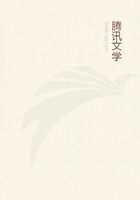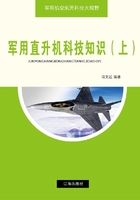Proof--This proposition is proved in the same way as the preceding one. See also the note appended thereto.
*****Note--If he believes that he has given just cause for the love, he will take pride therein (III. xxx. and note); this is what most often happens (III. xxv.), and we said that its contrary took place whenever a man conceives himself to be hated by another. (See note to preceding proposition.) This reciprocal love, and consequently the desire of benefiting him who loves us (III. xxxix.), and who endeavours to benefit us, is called "gratitude" or "thankfulness." It thus appears that men are much more prone to take vengeance than to return benefits.
Corollary--He who imagines that he is loved by one whom he hates, will be a prey to conflicting hatred and love.
This is proved in the same way as the first corollary of the preceding proposition.
*****Note--If hatred be the prevailing emotion, he will endeavour to injure him who loves him; this emotion is called cruelty, especially if the victim be believed to have given no ordinary cause for hatred.
XLII. He who has conferred a benefit on anyone from motives of love or honour will feel pain, if he sees that the benefit is received without gratitude.
Proof--When a man loves something similar to himself, he endeavours, as far as he can, to bring it about that he should be loved thereby in return (III. xxxiii.). Therefore he who has conferred a benefit confers it in obedience to the desire, which he feels of being loved in return; that is (III. xxxiv.) from the hope of honour or (III. xxx. note) pleasure; hence he will endeavour, as far as he can, to conceive this cause of honour, or to regard it as actually existing. But, by the hypothesis, he conceives something else, which excludes the existence of the said cause of honour: wherefore he will thereat feel pain (III. xix.). Q.E.D.
XLIII. Hatred is increased by being reciprocated, and can on the other hand be destroyed by love.
Proof--He who conceives, that an object of his hatred hates him in return, will thereupon feel a new hatred, while the former hatred (by hypothesis) still remains (III. xl.). But if, on the other hand, he conceives that the object of hate loves him, he will to this extent (III. xxxviii.) regard himself with pleasure, and (III. xxix.) will endeavour to please the cause of his emotion.
In other words, he will endeavour not to hate him (III. xli.), and not to affect him painfully; this endeavour (III. xxxvii.) will be greater or less in proportion to the emotion from which it arises.
Therefore, if it be greater than that which arises from hatred, and through which the man endeavours to affect painfully the thing which he hates, it will get the better of it and banish the hatred from his mind. Q.E.D.
XLIV. Hatred which is completely vanquished by love passes into love: and love is thereupon greater than if hatred had not preceded it.
Proof--The proof proceeds in the same way as Prop. xxxviii. of this Part: for he who begins to love a thing, which he was wont to hate or regard with pain, from the very fact of loving feels pleasure. To this pleasure involved in love is added the pleasure arising from aid given to the endeavour to remove the pain involved in hatred (III. xxxvii.), accompanied by the idea of the former object of hatred as cause.
*****Note--Though this be so, no one will endeavour to hate anything, or to be affected with pain, for the sake of enjoying this greater pleasure; that is, no one will desire that he should be injured, in the hope of recovering from the injury, nor long to be ill for the sake of getting well. For everyone will always endeavour to persist in his being, and to ward off pain as far as he can. If the contrary is conceivable, namely, that a man should desire to hate someone, in order that he might love him the more thereafter, he will always desire to hate him. For the strength of love is in proportion to the strength of the hatred, wherefore the man would desire, that the hatred be continually increased more and more, and, for a similar reason, he would desire to become more and more ill, in order that he might take a greater pleasure in being restored to health: in such a case he would always endeavour to be ill, which (III. vi.) is absurd.
XLV. If a man conceives, that anyone similar to himself hates anything also similar to himself, which he loves, he will hate that person.
Proof--The beloved object feels reciprocal hatred towards him who hates it (III. xl.); therefore the lover, in conceiving that anyone hates the beloved object, conceives the beloved thing as affected by hatred, in other words (III. xiii.), by pain; consequently he is himself affected by pain accompanied by the idea of the hater of the beloved thing as cause; that is, he will hate him who hates anything which he himself loves (III. xiii. note). Q.E.D.
XLVI. If a man has been affected pleasurably or painfully by anyone, of a class or nation different from his own, and if the pleasure or pain has been accompanied by the idea of the said stranger as cause, under the general category of the class or nation: the man will feel love or hatred, not only to the individual stranger, but also to the whole class or nation whereto he belongs.
Proof--This is evident from III. xvi.
XLVII. Joy arising from the fact, that anything we hate is destroyed, or suffers other injury, is never unaccompanied by a certain pain in us.
Proof--This is evident from III. xxvii. For in so far as we conceive a thing similar to ourselves to be affected with pain, we ourselves feel pain.















